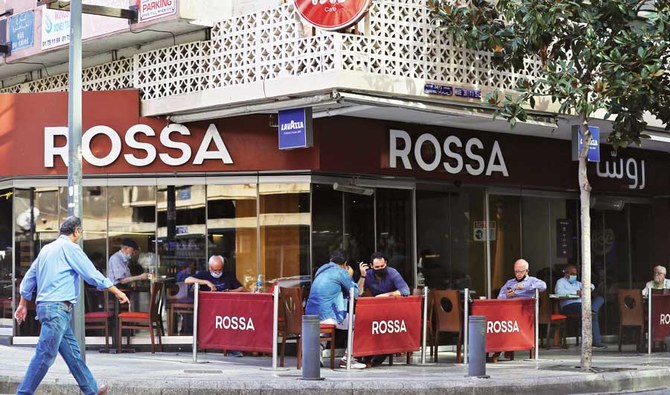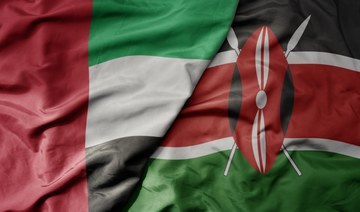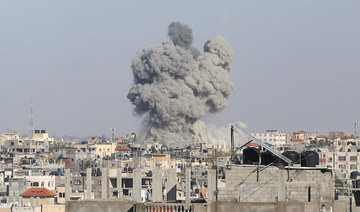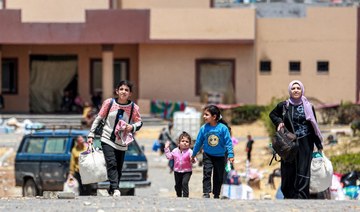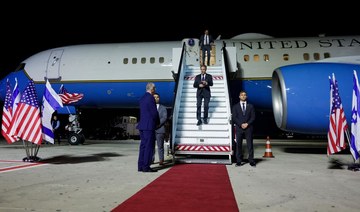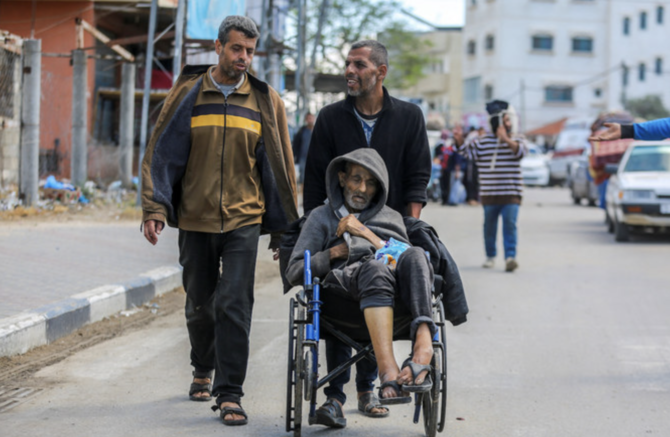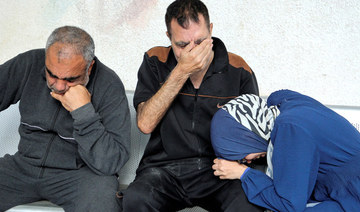BEIRUT: Beirut’s famous sidewalk cafes are facing an uncertain future amid the coronavirus pandemic and dollar exchange rate instability, with employees and owners warning that “the price of a cup of coffee cannot keep pace with the exchange rate.”
The recent lockdown, which lasted for two months and 22 days, meant further problems for the capital’s cafes, the place of choice for many Lebanese to relax, wind down and socialize.
Many have closed amid the country’s economic turmoil, while several were destroyed in the port explosion last year, and have since been left abandoned.
Lebanon’s health measures to stop the spread of coronavirus mean that people are banned from sitting with each other to smoke, sip coffee, chat about affairs or discuss the country’s future.
Ali Farhat, 35, an investor in a sidewalk cafe in the Azaria building in downtown Beirut, remembers the “good old times in the area before the protests and the accompanying riots started in late 2019 and the days before the collapse of the Lebanese pound and coronavirus.”
He added: “The area was bustling. The cafe was a place for entertainment, hanging out with people, winding down for half an hour during workdays and having a snack. Everyone back then could afford to sit in a coffee shop.
“Today, downtown Beirut is deserted, the employees moved to work from their homes, and my work has become limited to selling cigarettes, coffee and tea to passersby and the security forces guarding downtown Beirut.
“The worst financial crisis has caused the prices to soar. As the dollar exchange rose, I stopped selling my goods and closed the store, because the next day, I had to buy goods at a higher price.”
The price of a pack of locally manufactured cigarettes has increased from 1,000 Lebanese pounds ($0.65) to 5,000 pounds, while imported cigarettes, which used to cost about 4,000 Lebanese pounds, have risen to more than 13,000 Lebanese pounds for a single pack.
The price of a Nescafe coffee jar has grown a staggering amount — from 16,000 Lebanese pounds to more than 70,000.
Popular hookah tobacco has also seen a five-fold increase. Salam, 28, said: “I used to buy a kilogram of hookah tobacco for 20,000 Lebanese pounds and a kilogram of super charcoal for 3,000, and the price of a hookah did not exceed 50,000, but today, the price of a kilogram of tobacco is 110,000 pounds and a kilogram of regular coal is 30,000.”
Salam said that smoking to wind down was part of her usual routine and beneficial for her emotional well-being.
“The time I spend with the hookah is ‘me time,’” she added.
“I no longer go to cafes with girlfriends because of the coronavirus, and ordering a takeaway hookah has become impossible.
“I have cut down on hookah smoking at home, and after I used to smoke once a day, I now smoke one or two times per week due to the high prices and the decline in the value of my salary. We are giving up many things, and the hookah will be one of them.”
Mohammed, 33, who is a self-described coffee addict, said: “The price of a kilogram of coffee was 12,000 Lebanese pounds but has now increased to 35,000, and Nescafe has disappeared from the market. And since I have to choose between buying coffee and buying milk for my children, the milk is the priority.”
Ahmed, 37, an administrative employee in Cafe Younes in Beirut, warned that the economic crisis has had an enormous impact on the hospitality industry.
“The company that I work for was established in 1935 and survived all the wars, but what we are experiencing today forces us to adopt painful measures in order to remain in business,” he said.
“The price of a cup of coffee cannot keep pace with the fluctuations of the dollar exchange rate, because we will lose our customers.
“We raised the price from 4,000 to 9,000 Lebanese pounds, which is a relatively acceptable price. We lost a number of cafe branches in the explosion of the Beirut port, and in markets and malls that closed due to the crises.
“Our customers are still the same, but we have been seeing new customers who get paid in dollars.”
Ahmed said that while working following the Beirut port explosion, he witnessed many farewell parties for young men and women who had decided to emigrate from Lebanon.
“They were our customers and they left us, and their families no longer come to the cafe so as to not become emotionally overwhelmed,” he said.
Tony Ramy, president of the Syndicate of Owners of Restaurants, Cafes, Night-Clubs and Pastries in Lebanon, said: “The sequence of crises since the summer of 2019 has reduced the number of restaurants and cafes from 8,500 establishments to 4,300.
“This tourism sector developed itself over long periods, so cafes developed their own character and opened 24 hours a day.
“There are now only about 1,500 cafes operating. Cafes are the place where Lebanese people meet as part of their beautiful culture. The prices are reasonable, and some cafes that provide hookah services have become a meeting place for families.”
Ramy criticized the “state’s disorientation” in battling the coronavirus pandemic.
He said: “The closure of cafes at 9 p.m. in the evening is unjustified, as the virus does not run on a clock, and the cafes are busiest at this time.”
“The cost of purchases at these cafes rose six times with the collapse of the Lebanese pound, but the sector preferred to sacrifice part of its right in order to survive.”
“We cannot catch up with the dollar exchange rate as purchasing power has diminished. It is true that continuing to operate is difficult and we are trying to buy time, but giving up is forbidden and opening branches abroad may help secure doses of fresh oxygen.”



